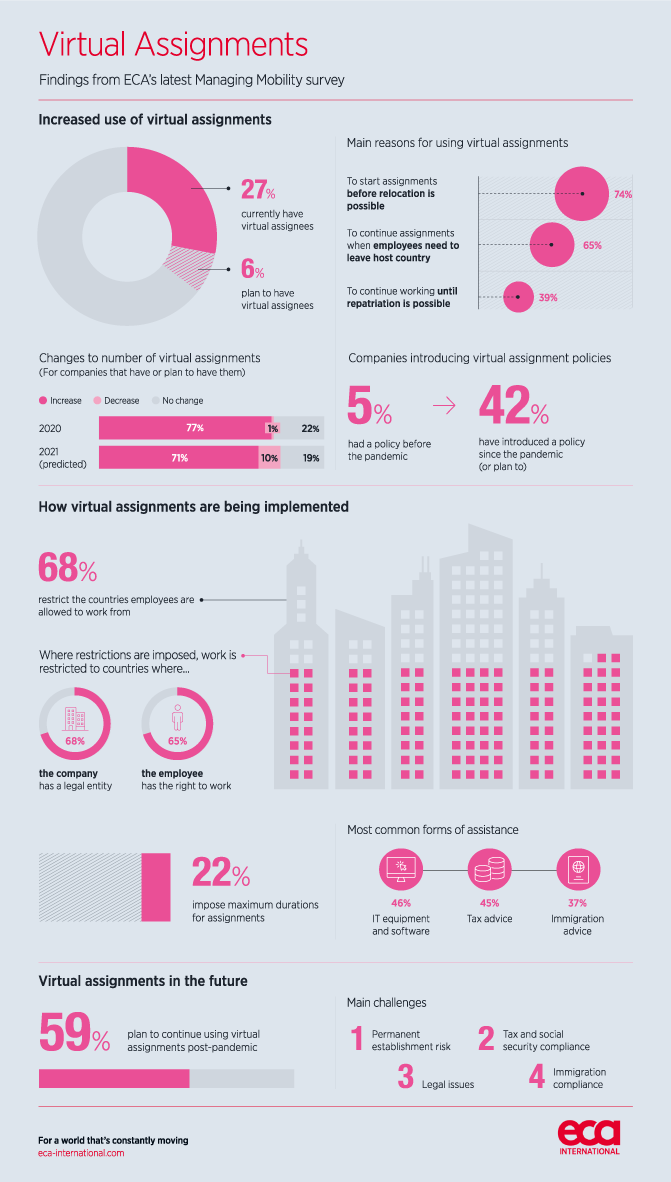There is little doubt that virtual assignments have been one of the most widely discussed topics in Global Mobility (GM) over the past 12 months, and will continue to be throughout 2021. Virtual assignments have become a necessary response for many businesses and GM teams to the Covid-19 pandemic.
The results and findings of our recent Managing Mobility Survey have shed new light on the ways in which organisations have approached and implemented virtual assignments, and how they will likely shape policy and practice permanently in the future. For example, only 5% of companies had virtual assignment policies in place before the pandemic, but over 40% of those surveyed are now planning on introducing one.
The results showed that organisations are using virtual assignments to manage different challenges. Many are understandably using them as a way to start an assignment before travel and relocation is possible, but we have also seen a large minority of companies using virtual assignments to allow assignees to continue working in a host location until repatriation is possible. Businesses are also initiating new virtual assignments in order to offer greater flexibility for assignees and to help better manage any safety and family concerns that they may have.
What is clear is that virtual assignments are here for the long-term and the compliance challenges associated with them will only grow for many organisations. Our infographic below illustrates the key findings on virtual assignments, but please get in touch to find out how our consultancy team can help you decide if virtual assignments are a suitable option for your company.
